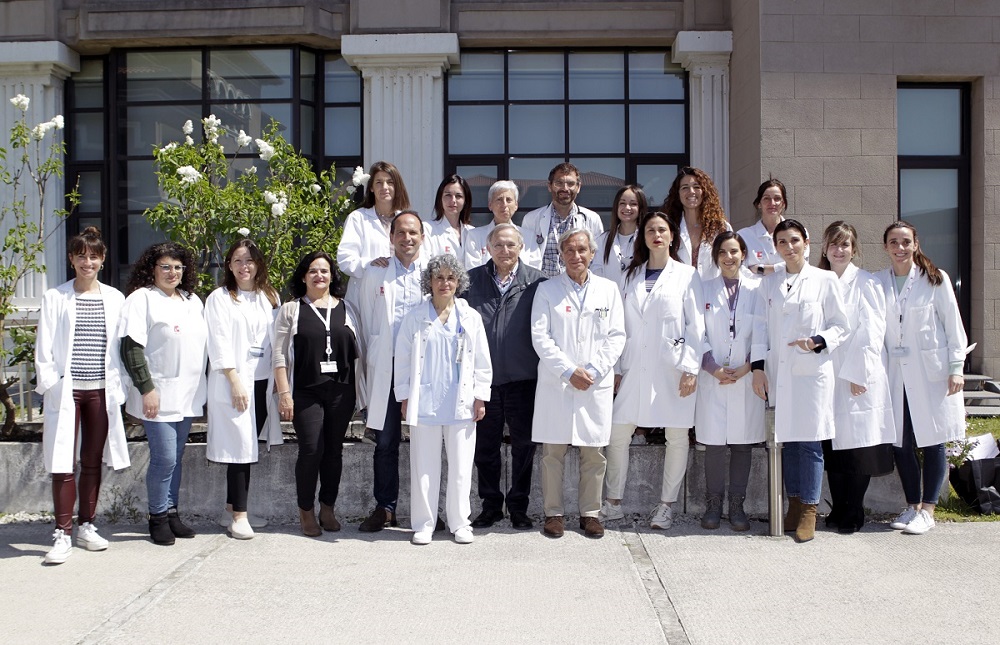The results open the possibility of using 5 genes identified as markers that correlate with the severity of the disease in the brain.
The `Neurodegenerative Diseases´ group of the Marqués de Valdecilla Health Research Institute (IDIVAL) led by Dr. Jon Infante Ceberio has participated in a european multicenter study with the aim of identifying genes with relevant changes in the progression of the rare neurodegenerative disease called autosomal dominant cerebellar ataxia (SCA3), also known as Azores disease, Machado disease or Machado-Joseph disease.
The research reveals a set of 5 genes that undergo important changes in their expression in stages prior to the clinical development of the disease and correlate with its severity. These results open up the possibility of using these genes as markers for early detection of this disorder, monitoring its progression and analyzing how it responds to treatments.
Today there are no specific treatments to slow or halt the progression of SCA3, but rather care is focused on combating movement-related symptoms that affect motor coordination and balance. Therefore, the identification of accurate, reliable and easily accessible biomarkers is one of the necessary requirements for the development of clinical trials with the greatest guarantee of success.
In the study, published in the journal Brain, a blood analysis of the RNA molecules present or transcriptome was carried out in a group of patients with SCA3 at different evolutionary stages of the disease and in control subjects. Similarly, these analyses were performed on brain samples and the set of candidate genes obtained was replicated in an independent sample of SCA3 patients and healthy controls.
Finally, a set of 5 genes were identified in blood and brain that undergo important changes in their expression in presymptomatic stages of the disease and correlate with the severity of ataxia, which will have to be confirmed in future studies in order to be applied to the clinic.
Participation in consortia and networks
The responsible research group is also part of the Centers, Services and Reference Units (CSUR) of Hereditary Ataxias and Paraplegias of the Marqués de Valdecilla University Hospital (HUMV) accredited by the National Health System (NHS), as well as of the European Network of Rare Neurological Diseases (ERN-RND). Likewise, for more than two decades, they have been integrated in a european consortium that seeks to define the natural history of autosomal dominant cerebellar ataxias, as well as to build cohorts prepared for the implementation of clinical trials.
Several european projects (EUROSCA, RISCA, ESMI) have been funded in the framework of this consortium with the participation of HUMV and IDIVAL. The current project is part of the European Spinocerebellar ataxia type3/Machado-Joseph disease initiative (ESMI), EU Joint Programme – Neurodegenerative Disease Research (JPND).
Reference: Raposo M, Hübener-Schmid J, Ferreira AF, Vieira Melo AR, Vasconcelos J, Pires P, Kay T, Garcia-Moreno H, Giunti P, Santana MM, Pereira de Almeida L, Infante J, van de Warrenburg BP, de Vries JJ, Faber J, Klockgether T, Casadei N, Admard J, Schöls L; European Spinocerebellar ataxia type 3/Machado-Joseph disease Initiative (ESMI) study group; Riess O, Lima M. Blood transcriptome sequencing identifies biomarkers able to track disease stages in spinocerebellar ataxia type 3. Brain. 2023 Apr 18





















